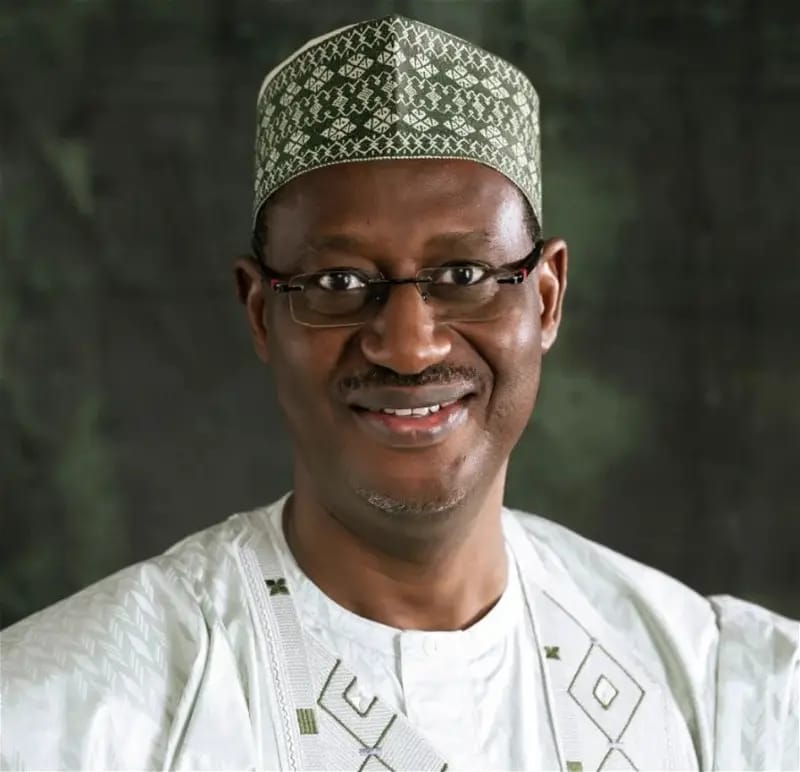Paragraph 1: Ambitious Goals for Land Reform and Economic Growth
Nigeria’s Minister of Housing and Urban Development, Ahmed Dangiwa, has unveiled a bold vision for transforming the nation’s land administration and unlocking its economic potential. His primary objective is to formalize land transactions across the country, increasing the rate of formalization by 50% within the next decade. This initiative, according to Dangiwa, has the potential to unleash a staggering $150 billion in "dead capital," referring to assets that are informally held and thus cannot be readily leveraged for economic activity. The injection of this capital into the formal economy is projected to boost Nigeria’s Gross Domestic Product (GDP) by a significant 30%. This ambitious undertaking is viewed as a cornerstone of the ministry’s broader "Renewed Hope Agenda" for housing and urban development.
Paragraph 2: Strategic Partnerships and Program Implementation
To achieve these ambitious targets, the Ministry of Housing and Urban Development is actively collaborating with key partners, including the World Bank and various state governments. This collaborative effort centers around the implementation of a comprehensive National Land Registration and Titling Programme. The World Bank played a crucial role by conducting a technical mission in November of the previous year, with a follow-up mission planned for the near future. This partnership signifies a significant stride towards streamlining land administration processes and strengthening property rights, which are essential for attracting investment and stimulating economic growth.
Paragraph 3: Institutional Reforms and Housing Initiatives
Beyond land reform, the ministry is pursuing a multi-pronged approach to address housing challenges. Key initiatives include the establishment of a National Social Housing Fund and the creation of Building Materials Manufacturing Hubs. Task teams have submitted reports outlining recommendations for these initiatives, which have been reviewed internally by the ministry. These proposals aim to increase access to affordable housing and stimulate the local construction industry. Further stakeholder consultations, including the Sector Retreat, are planned to gather additional input and refine these strategies. The ministry also highlighted the expansion of the National Urban Renewal and Slum Upgrade Programme, with over 100 completed projects nationwide aimed at improving living conditions in various communities.
Paragraph 4: Policy Development and Strategic Alignment
The Ministry of Housing and Urban Development emphasizes the critical role of policy formulation in achieving its objectives. A significant achievement in this area is the development of a National Urban Development Policy, in collaboration with UN-Habitat. This policy, awaiting presentation and approval by the Federal Executive Council, provides a 10-year framework for sustainable urbanization in Nigeria. Its core objectives include aligning national urban development with international best practices, operationalizing national policies across multiple sectors, and creating inclusive cities that cater to the needs of all residents. This policy underscores the ministry’s commitment to leveraging urbanization as a driver of economic growth.
Paragraph 5: Reviewing and Updating the National Housing Strategy
Recognizing the dynamic nature of the macroeconomic environment, the ministry is undertaking a review and update of the National Housing Strategy Report 2023. While acknowledging the thoroughness of the initial report, which was developed in partnership with FMDQs, PWC, and other stakeholders, the ministry recognizes the need to incorporate more recent data and adjust to the evolving economic landscape. This review ensures that the strategy remains relevant and effective in addressing the evolving housing challenges facing Nigeria.
Paragraph 6: Regulatory Framework and Enforcement
To further strengthen the housing sector, the ministry is working towards establishing a Real Estate Regulatory Authority. This initiative, championed by the House of Representatives Committee Chairman on Housing and Habitat, aims to introduce greater transparency and accountability within the real estate market. Additionally, the ministry is developing strategies to ensure that properties are utilized according to designated city plans, addressing a key concern raised by the Chairman of the House Committee on Urban Development. These efforts reflect the ministry’s commitment to enhancing regulation and enforcement within the sector. The minister reiterated the importance of collaboration and stakeholder engagement in achieving these ambitious goals, emphasizing that addressing Nigeria’s housing challenges requires a concerted and comprehensive approach.


